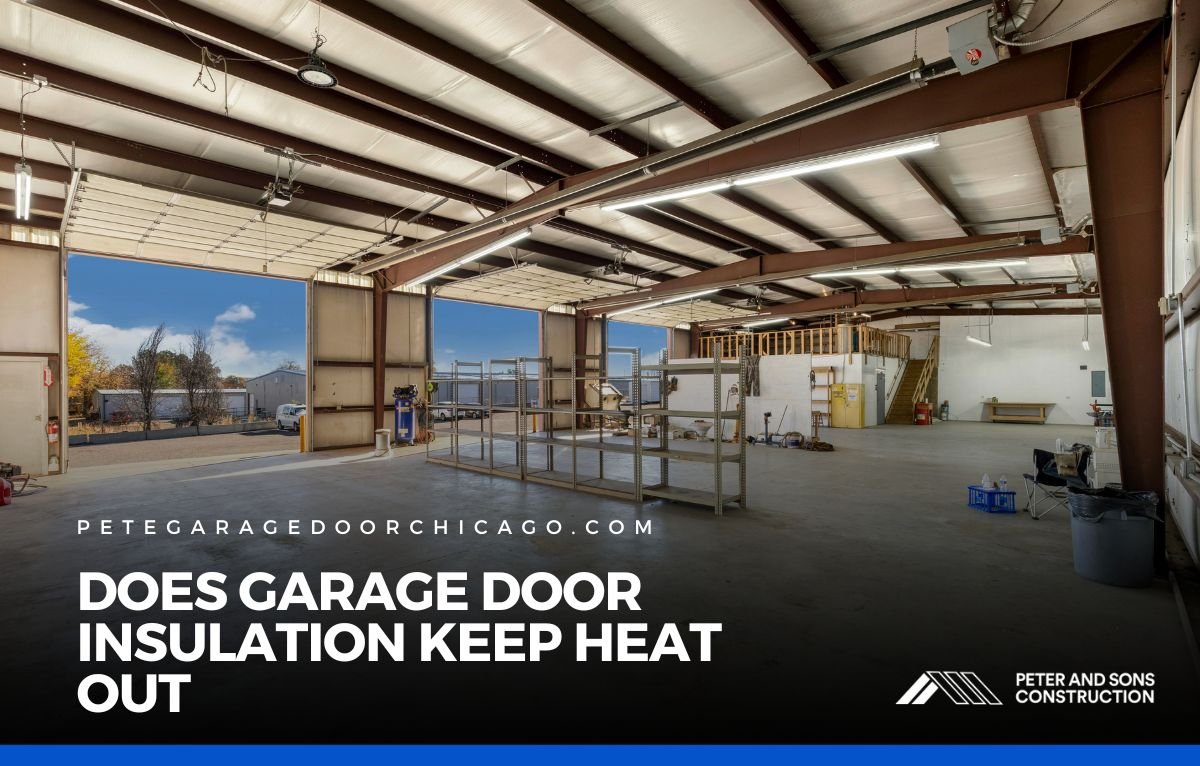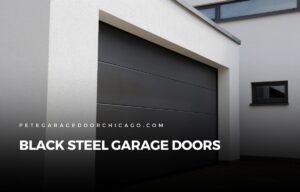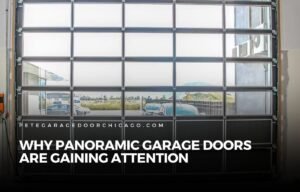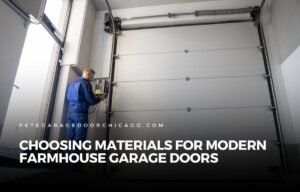How Garage Door Insulation Helps Keep Heat Out of Your Home

When summer temperatures rise, your garage can quickly turn into one of the hottest spaces in the house.
Since most garages aren’t built with the same insulation as the rest of your home, they often trap heat, making them uncomfortable and even harmful for items stored inside.
Homeowners often ask: does garage door insulation keep heat out?
The answer is yes, but the results depend on the type of insulation you choose, the condition of your garage door, and the overall setup of your garage.
Let’s look at how insulation works, the options available, and what you can expect when upgrading your garage door.
How Does Garage Door Insulation Keep Heat Out?
Garage doors are large, thin surfaces that act as conductors of outdoor temperatures.
When the sun beats down in summer, the metal or wood panels heat up and transfer that heat inside.
Insulation works as a barrier, slowing the transfer of hot air into the garage. The better the insulation, the more effectively it keeps the garage cooler.
The answer to does garage door insulation keep heat out also depends on the surrounding structure.
If your garage walls and ceiling are insulated, adding garage door insulation makes a noticeable difference.
Without it, your garage can reach temperatures 20 to 30 degrees hotter than the outside air.
What Types of Garage Door Insulation Work Best?
There are a few configurations you can choose from depending on your budget and needs:
- Polystyrene Panels: Lightweight foam sheets inserted into garage door sections. Affordable and easy to install, but offer moderate thermal resistance.
- Polyurethane Foam: Sprayed or injected into the door sections, creating a denser and stronger barrier. This option provides better insulation and also strengthens the door against dents.
- Reflective Foil Insulation: Uses aluminum foil layers to reflect radiant heat away from the garage. Works well in hot climates but less effective in colder seasons.
Each type comes with an R-value (a measure of insulation performance). Higher R-values mean better insulation and improved comfort.
For example, a standard non-insulated steel door may have an R-value of 1, while a high-quality insulated door with polyurethane foam can reach an R-value of 12 or higher.
That difference can reduce garage heat by 15 to 20 degrees on a summer day.
Does Garage Door Insulation Keep Heat Out During Summer Only?
Many homeowners think insulation is only for cold winters, but it’s equally useful in summer. Just as it prevents warm air from escaping in winter, insulation also keeps hot outdoor air from entering in summer.
This helps keep the garage closer to indoor temperature levels, reducing stress on air conditioning if the garage is attached to the house.
So, when asking does garage door insulation keep heat out, the answer applies year-round: it helps regulate temperature in both directions.
Can Insulated Garage Doors Lower Energy Costs?
Yes. A hot garage transfers heat into adjacent rooms, making your air conditioner work harder. An insulated garage door reduces that heat transfer.
If you use your garage as a workshop, home gym, or laundry area, insulation keeps the space more comfortable without running fans or portable AC units.
For attached garages, the benefits extend to the rest of your home. Less heat seeping through the walls means lower cooling bills and a more consistent indoor environment.
Over time, the energy savings often balance out the cost of upgrading to an insulated garage door.
Another overlooked benefit is noise reduction. Insulated garage doors naturally absorb sound, which can be helpful if your garage faces a busy street or you frequently use power tools inside.
This makes insulation a smart choice for comfort in more ways than one.
What’s the Best Option for Your Home?
Choosing the right insulation depends on how you use your garage:
- For homeowners using the garage as a living or working space, polyurethane foam provides the most effective insulation and soundproofing.
- For storage garages, polystyrene panels may be enough to protect items from extreme heat.
- For areas with long, hot summers, reflective foil insulation can add extra protection against radiant heat.
If you’re unsure, a professional installer can recommend the right configuration based on your garage door type, climate, and budget.
Should You Replace or Retrofit?
If your garage door is old, warped, or damaged, adding insulation may not be enough. In these cases, replacing the door with a pre-insulated model provides the best results.
Modern insulated garage doors are built with materials that maximize energy efficiency while improving durability and appearance.
If your door is in good shape, retrofit insulation kits are an affordable way to improve comfort without replacing the entire door.
Keep in mind that professional installation usually provides tighter seals and better long-term performance than DIY kits.
Why Garage Door Insulation Matters More Than You Think
So, does garage door insulation keep heat out? Absolutely.
While results vary based on the insulation material and the overall condition of your garage, the right setup can lower indoor temperatures, protect your belongings, and even cut energy costs.
If you spend time in your garage—or simply want to stop it from becoming the hottest part of your home—insulation is one of the smartest upgrades you can make.
A cooler garage protects everything inside, from power tools and electronics to your car’s battery and tires, which can wear faster in extreme heat.
Plus, when combined with a quality seal around the door and proper wall insulation, the benefits extend throughout your home.
For homeowners in Niles, IL and nearby communities, Peter and Sons Constructions offers professional garage door installation and insulation services tailored to your needs.
With the right garage door configuration, you can enjoy a more comfortable home, improved energy efficiency, and peace of mind knowing your investment is working year-round.



